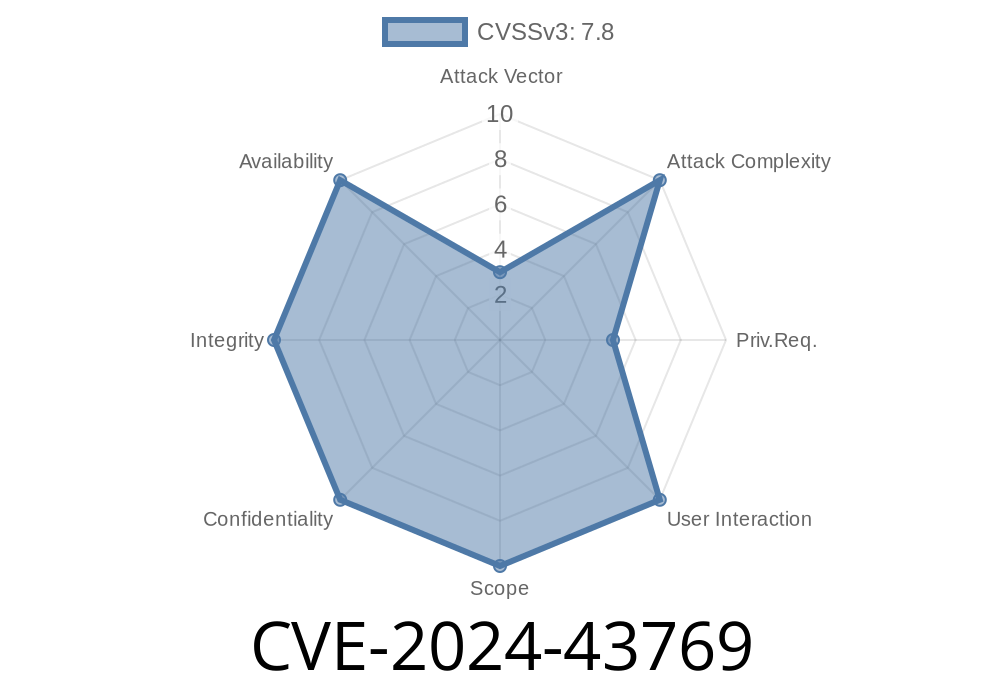A new Android security vulnerability, CVE-2024-43769, has made headlines for its simplicity and potential for misuse. Found in the isPackageDeviceAdmin function within the PackageManagerService.java class, this bug can block users and even administrators from uninstalling certain device admin packages like CloudDPC, paving the way for a possible local privilege escalation.
In this article, we will break down how this vulnerability works, point out the affected code, demonstrate a proof-of-concept, and discuss the security concerns for enterprise devices.
What is CloudDPC?
CloudDPC is a popular device policy controller used in many enterprise device management environments. If an attacker, or even simply a misconfigured setting, causes CloudDPC to become unremovable, users, admins, or even IT staff can be left powerless to maintain or remove it.
Where is the Bug? The Faulty Logic in PackageManagerService.java
It all started with a simple mistake in how Android checks if an app is a device admin. Here’s a simplified, illustrative version of the problematic function (comments are ours for clarity):
public boolean isPackageDeviceAdmin(String packageName) {
// Suppose getActiveAdmins() incorrectly handles some edge cases
List<ComponentName> admins = getActiveAdmins();
if (admins == null) return false;
for (ComponentName admin : admins) {
if (admin.getPackageName().equals(packageName)) {
// Logic error: certain state might make this miss some admin packages
return true;
}
}
return false;
}
The Problem
- Due to an edge case in how getActiveAdmins() returns the list (e.g., during certain install/uninstall states, or when CloudDPC uses non-standard registration flows), important device admin packages are not reported as active.
- As a result, the system treats CloudDPC as a system device admin but without properly tracking it, thereby refusing to uninstall it.
This logic flaw creates a perfect storm for attackers
- Persistence: A malicious admin package (like CloudDPC, if corrupted or hijacked) can persist on the device.
- No User Interaction Needed: The exploit does not require user permission—once the device admin is stuck, even ADB or device policy uninstalls fail.
- Locked-down Device: The attacker (or a buggy admin app) can enforce device policies or block access forever.
Proof-of-Concept: Exploit Scenario
Here’s how an attacker (with a helper app or after gaining device admin rights) could exploit CVE-2024-43769:
Disable Admin Tracking.
- The admin appears deactivated (in the OS’s list), but the package still has device owner privileges.
Sample code snippet for device admin registration (simplified)
DevicePolicyManager dpm = (DevicePolicyManager) context.getSystemService(Context.DEVICE_POLICY_SERVICE);
ComponentName deviceAdmin = new ComponentName(context, MyDeviceAdminReceiver.class);
// Edge-case: Register admin but immediately kill process or skip some state
dpm.setActiveAdmin(deviceAdmin, true);
// Crash or kill here, or fail to send broadcast
Process.killProcess(Process.myPid());
// This leaves system state inconsistent
With this inconsistency, the system’s uninstall check will refuse to remove the problematic package.
Real-world Consequences
Enterprise users are at particular risk. If a corporate CloudDPC instance is affected and cannot be uninstalled, important updates, security fixes, or migrations become impossible without fully wiping the device.
IT staff could find company devices permanently enrolled in an outdated cloud policy — or, worse, attackers could plant a persistent admin agent to spy or control users.
What’s the Fix?
Google has addressed CVE-2024-43769 by updating the logic in Android 14’s PackageManagerService. The fix ensures that all active and "pending" device admin packages are properly included in uninstall and permission checks.
Patch reference:
https://android.googlesource.com/platform/frameworks/base/+/refs/heads/master/services/core/java/com/android/server/pm/PackageManagerService.java
Related CVE entry:
https://cve.mitre.org/cgi-bin/cvename.cgi?name=CVE-2024-43769
Conclusion
CVE-2024-43769 is a perfect reminder that even small logic errors can have big impacts, especially in complicated systems like Android’s device administration flow. If you manage Android devices — especially with CloudDPC or similar admins — make sure to apply all available security updates immediately.
Stay safe! If you want to dive deeper, check the links above and make sure your organization is not at risk from this subtle but serious Android bug.
> References:
>
> - Android Patch for CVE-2024-43769
> - CVE Details
> - Android Enterprise Device Policy
Timeline
Published on: 01/03/2025 01:15:08 UTC
Last modified on: 03/13/2025 15:15:47 UTC
